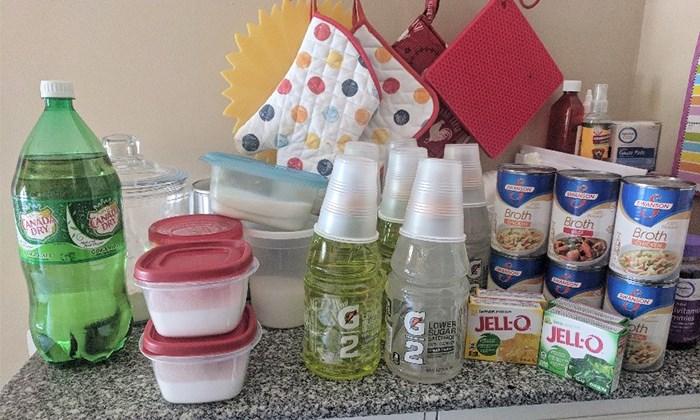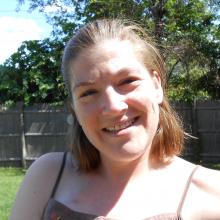In 2008, I was diagnosed with Lynch Syndrome — a condition that predisposes you to certain types of cancers, the main one being colon cancer. Since I also have cystic fibrosis, my chances of developing colorectal cancer are ridiculously high. Unlike the typical person with CF, this means that I must undergo a colonoscopy every year.
Although I have become very well-versed in how colonoscopies work and how to prepare for them over the years, this was not always the case. In fact, the first few times I had a colonoscopy, I had to repeat the exam (and everything that went into preparing for it) because the prep I had done was insufficient.
Not only was I unaware of the differences between my digestive system and the digestive system of someone without CF, but colorectal cancer was not really on the radar of many CF docs 10 years ago; so, neither was the prep.
Fortunately, however, my endoscopist, my CF care team, and I have learned a few lessons over the years that have made preparing for my yearly colonoscopy far less daunting.
Prep Work
As I mentioned above, the CF digestive system is very different than the average person's. Our systems are slower and full of mucus, so it takes much more time, and greater quantities of prep solution, to clean us out sufficiently.
When I have a colonoscopy, I spend three or four days prepping for the exam. Since constipation is an ongoing issue for me, I also have learned that I need to start taking a dose of MiraLAX® each day at least 7-10 days prior to the exam. Personally, I also avoid high-fiber foods like broccoli, grains, etc., for the week or two before my colonoscopy since I've found that I have a harder time digesting these foods, which can increase the amount of stool in my colon. But obviously, it's different for everyone.
The most important part of preparing for a colonoscopy when you have CF, however, is splitting up the bowel cleansing solution into three or four separate sets of 64 ounces. It works great! By drinking the bowel cleansing solution in multiple, smaller washes, your colon gets cleaned out much better.
CF-related diabetes (CFRD) can also complicate your colonoscopy prep. This past year was my first time getting a colonoscopy as a person with CFRD, so I worked with my diabetes doctor to ensure that my prep would go smoothly.
Foods That I Eat, Foods That I Avoid
Certain foods or food colors can ruin the hard work that you put in, so knowing what to eat during your prep is vital. For me personally, a clear liquid diet is the recommended diet during my prep, which I start the day before I begin drinking the solution. During this time, I MUST avoid all red, purple, or blue foods and dairy — which includes most soups and ice cream. Nothing solid is to be consumed.
Because of my CFRD, my doctor also recommended a few changes the last time I had a colonoscopy. Apple juice and lemonade were my drinks of choice, but because of their sugar content, I switched to G2™ and Crystal Light™ lemonade. I also purchased the sugar-free Jell-O® snack cups to supplement the regular Jell-O® that I made.
Examples of what I eat:
- Yellow and green Jell-O®
- Beef stock/broth
- Chicken stock/broth
- Lemon water-ice
- Yellow and clear G2 Gatorade™
- Crystal Light™ lemonade
- Ginger ale (in case I feel nauseous)
Colonoscopy Day
The hardest part of the procedure is the prep. However, there are a few things to be aware of for procedure day.
The first is that you will need a ride home, which means an actual person must meet you in the office/waiting area. Because the sedatives they give you during the exam affect everyone differently, the hospital will not let you take a cab, Uber, or Lyft home to ensure your safety.
Though the procedure itself takes less than an hour, I typically spend a few hours at the hospital. For me, there is at least an hour before the scheduled exam time spent in pre-op getting an IV placed, answering questions, and meeting with the team of doctors who will be performing the procedure. If your endoscopist finds any polyps, he or she will remove them during the procedure. This eliminates the need to return a second time.
Once the exam is over and you're in recovery, you will have to pass gas before they will let you leave. And they must hear it. Don't worry, they are used to it. And if you are anything like me, when you wake up coughing, you will involuntarily pass gas with your coughing. They like that.
Knowledge Is Power
Knowing that people with CF have a higher risk of colon cancer can seem daunting. We already deal with so much and face enough challenges trying to balance daily life with our health. Now, we may have to add in a three or four-day prep for a procedure that has always seemed for the “old.” I hope that by explaining what I go through, and why, it will help ease some of the burden.
As someone who has had 10 to 12 colonoscopies in the last decade, they still slightly stress me out to this day. I don't like the prep work. But, I know I need to have them done so that I can be sure I don't develop cancer. Plus, I am finally equipped with the knowledge of what to expect and how to get the best results so that I can at least feel prepared and confident in a sufficient prep.
Join the conversation on Facebook.



